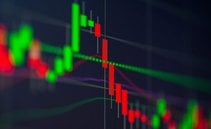How will some major currencies fare on the Forex market amid interest rate cuts and trade dynamics?

2024 will be a year characterized by wide fluctuations in the currency market, and as Forex is the largest and most liquid market in the world, with daily transactions reaching the incredible value of over 6,000 billion dollars, anyone who wants to invest - professionally or otherwise - should pay close attention to this market.
Therefore, to understand which currencies could be revalued or devalued this year, it is important to consider the factors that affect the supply and demand of a currency. Simply put, the exchange rate is the price of one currency in relation to another.
So first of all there are the trade dynamics, the countries that export a lot and have a positive trade balance will tend - usually, not normally - to see their currency revalued because their products are in great demand abroad. And to pay a foreign producer you need foreign money.
Secondly, but no less important, is the monitoring of monetary policy choices. When central banks raise interest rates, for example, to fight inflation, they usually also revalue their currencies because government bonds and in general financial assets denominated in that currency yield more. This means attracting capital from abroad and therefore pushing the demand for currency.
With these two premises, we can evaluate the performance of some currencies.
Let’s start with the Japanese yen. As we know, the Japanese central bank was the only one to keep rates at zero even in the last two years in which the other major global central banks raised interest rates, even heavily. Exactly as per the book, this resulted in a large devaluation of the yen, in the order of 30% against the euro and dollar. Now, however, things are changing, most central banks are about to start cutting interest rates, some including probably the ECB, as early as next March. Instead, the new president of the Bank of Japan has recently opened up to innovations in monetary policy, signaling so-called ’hawk’ demands. The Japanese trade balance also seems to return to positive, with the classic J-curve following a strong devaluation. In summary, initially, you pay more for imports due to a less strong currency, but then the same pushes exports. For this reason, in my opinion, the devaluation of the yen compared to the main currencies could have stopped and in these months we could witness a different dynamic.
On the contrary, if we take the British pound as a reference, market data tell us that investors expect around 4-5 rate cuts between now and the end of the year for an amount of just 1.1%. The expected rate for the end of this year would be just over 4%. While it is true that the United Kingdom was one of the countries with the highest inflation in 2022 and at the beginning of 2023, on the other, the economic dynamics seem to suggest a different trend. December 2023 inflation fell to 4% from over 10% in December 2022, third quarter 2023 economic growth was even negative, and the decline in December retail sales data was the worst since early 2021 In short, the English economy seems to be cooling down significantly. In this sense, I believe that the central bank may find itself forced to cut interest rates by well over 1% this year, thus leading to a devaluation of the British pound.
Finally, we can introduce another quite bizarre but interesting indicator, the so-called Big Mac index. This index constructed by the famous magazine ’the economist’ starts from the assumption of "purchasing power parity", a theory according to which in the medium term the exchange rate between two currencies should naturally tend to adjust so that a basket of goods has the same cost in both currencies. In the Big Mac index, the "basket" is made up only of the famous McDonalds sandwich.
In this ranking, in which the underlying currency is the dollar, we often see the Swiss franc at the top. And I would say that for once this index gets it right. The franc could tend to depreciate in the coming months. Historically, the Swiss franc has been seen as a safe haven currency, and the Swiss central bank has also raised interest rates in recent months, helping to attract capital.
Yet, inflation in Switzerland in recent months has been the lowest in Europe and has already fallen below the 2% ceiling, to be precise at 1.7%. Instead, the interest rate remains at 1.75%. In this sense, the central bank may want to prevent inflation from falling too much - also given the fact that Switzerland has also experienced periods of deflation in recent years - and therefore cut rates more than the market expects.
In any case, between trade wars and revolutions in monetary policies, the next few months on Forex will be quite interesting.
Original article published on Money.it Italy 2024-01-31 16:00:00. Original title: Quali valute seguire con attenzione nel 2024





